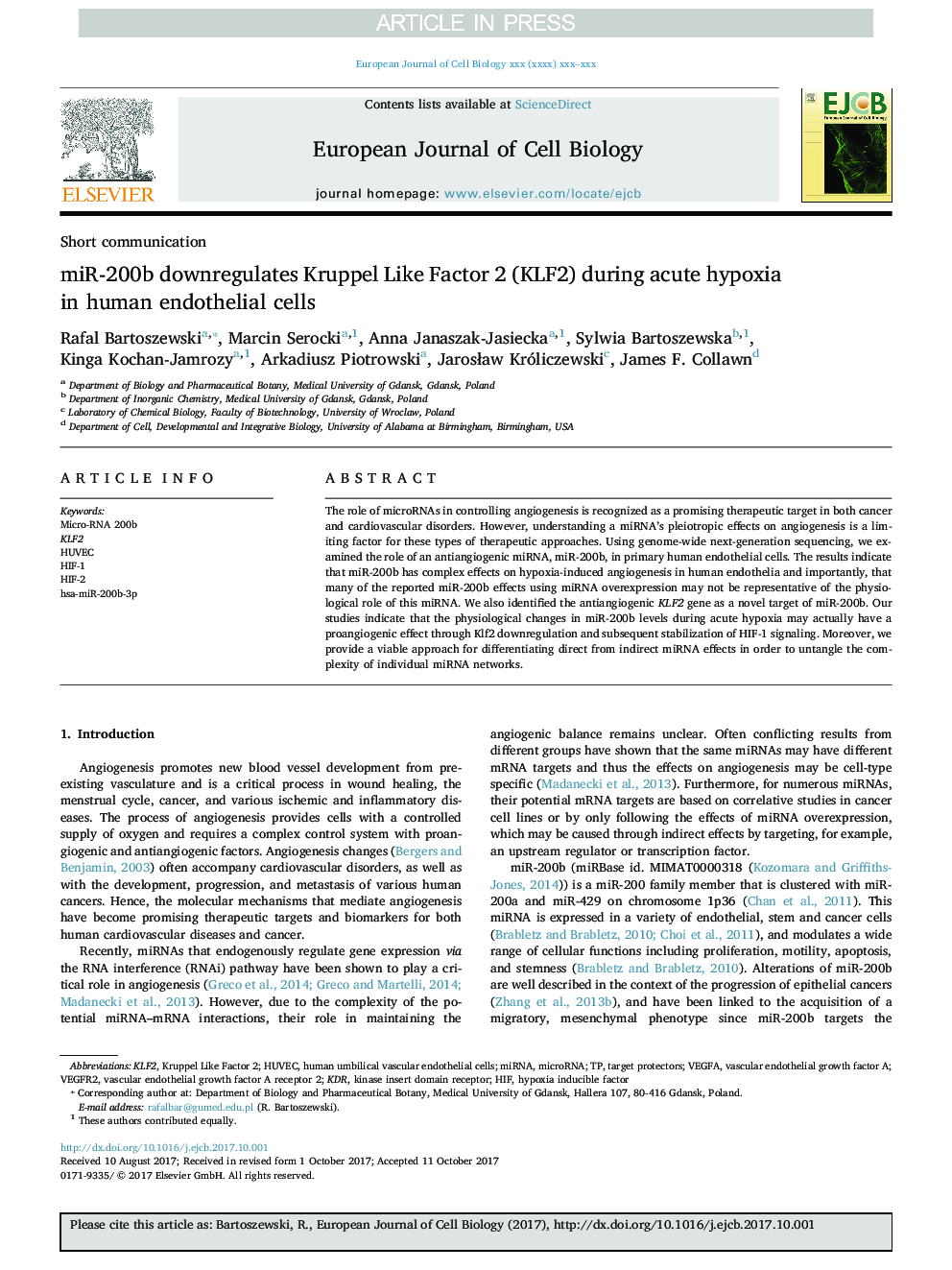| Article ID | Journal | Published Year | Pages | File Type |
|---|---|---|---|---|
| 8469727 | European Journal of Cell Biology | 2017 | 9 Pages |
Abstract
The role of microRNAs in controlling angiogenesis is recognized as a promising therapeutic target in both cancer and cardiovascular disorders. However, understanding a miRNA's pleiotropic effects on angiogenesis is a limiting factor for these types of therapeutic approaches. Using genome-wide next-generation sequencing, we examined the role of an antiangiogenic miRNA, miR-200b, in primary human endothelial cells. The results indicate that miR-200b has complex effects on hypoxia-induced angiogenesis in human endothelia and importantly, that many of the reported miR-200b effects using miRNA overexpression may not be representative of the physiological role of this miRNA. We also identified the antiangiogenic KLF2 gene as a novel target of miR-200b. Our studies indicate that the physiological changes in miR-200b levels during acute hypoxia may actually have a proangiogenic effect through Klf2 downregulation and subsequent stabilization of HIF-1 signaling. Moreover, we provide a viable approach for differentiating direct from indirect miRNA effects in order to untangle the complexity of individual miRNA networks.
Keywords
Related Topics
Life Sciences
Agricultural and Biological Sciences
Plant Science
Authors
Rafal Bartoszewski, Marcin Serocki, Anna Janaszak-Jasiecka, Sylwia Bartoszewska, Kinga Kochan-Jamrozy, Arkadiusz Piotrowski, JarosÅaw Króliczewski, James F. Collawn,
